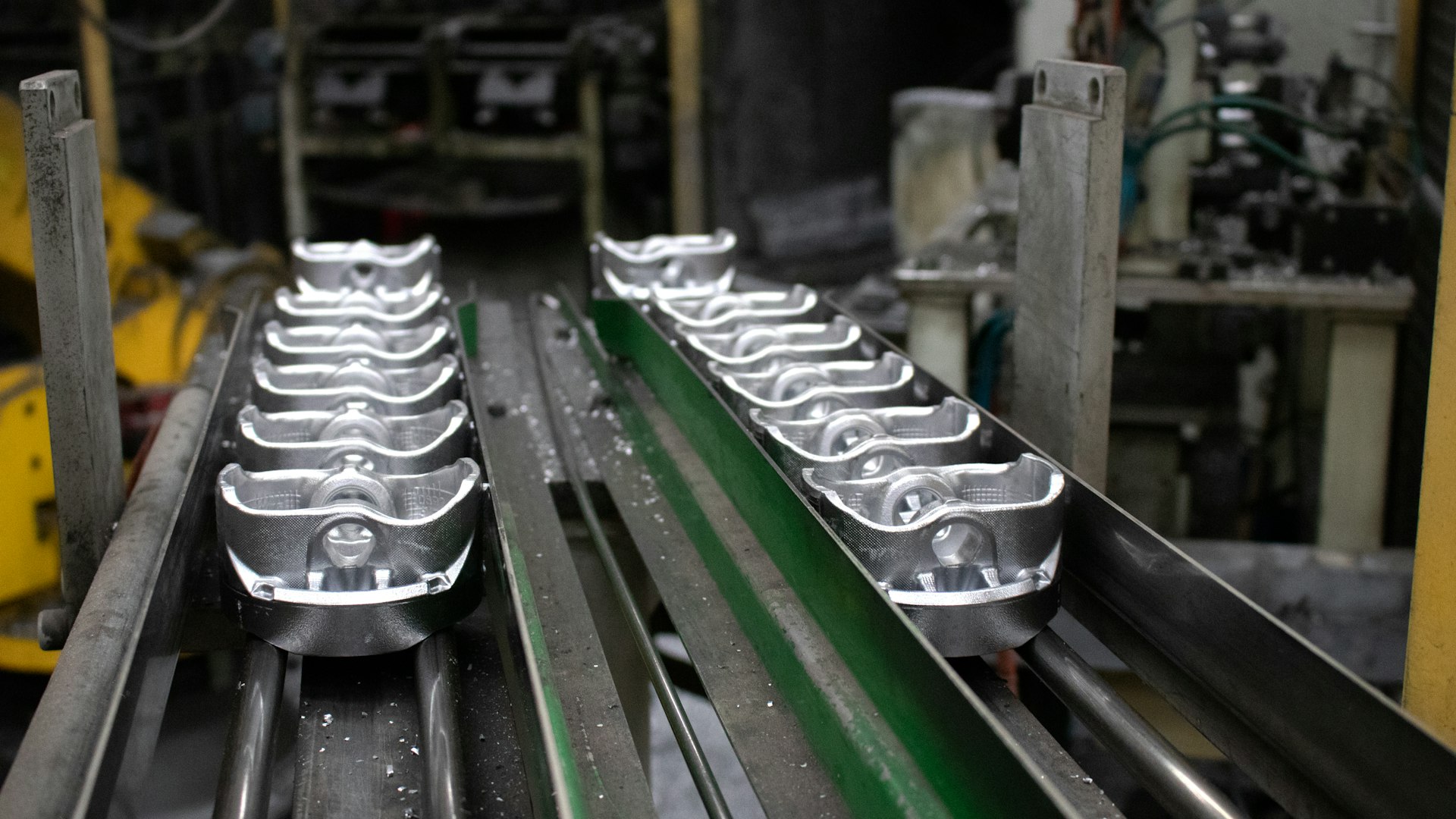How Decentralized Autonomous Organizations Are Transforming Modern Finance

Photo by Josh Hild on Unsplash
Introduction: The Rise of DAOs in Finance
Decentralized Autonomous Organizations (DAOs) are revolutionizing the way financial systems operate by leveraging blockchain technology to enable transparent, democratic, and borderless governance. Unlike traditional organizations with centralized leadership, DAOs empower their members to make collective decisions through coded rules and smart contracts, resulting in increased efficiency, global accessibility, and reduced reliance on intermediaries. This article explores the multifaceted role of DAOs in finance, providing actionable guidance for individuals and institutions interested in engaging with this transformative model.
What Is a DAO and How Does It Work?
A DAO is an organization governed by its members via transparent, blockchain-based smart contracts, without a central authority. The rules and operational logic are embedded in computer code, enabling automatic execution of decisions once preset conditions are met [1] . Members typically hold tokens that grant voting power and ownership rights, allowing them to participate directly in the decision-making process. All proposals, votes, and transactions are recorded on an open ledger, ensuring full transparency and auditability [3] .
Key Features of DAOs
Decentralization: No single party has control; governance is shared among all members. Smart Contracts: Automated rules ensure fairness and eliminate the need for intermediaries. Transparency: All actions are visible and verifiable on the blockchain. Tokenized Ownership: Voting and participation rights are linked to token holdings. Global Accessibility: Anyone with an internet connection and the required tokens can participate, regardless of location [4] .
DAOs in Financial Services: Use Cases and Impact
DAOs have found their strongest foothold in decentralized finance (DeFi) , but their influence is expanding into traditional finance (TradFi) and beyond. Here are some ways DAOs are transforming financial services:
1. Protocol Governance and DeFi Innovation
Major DeFi platforms such as MakerDAO and Compound use DAOs to manage lending, borrowing, and asset management protocols. Community members propose changes, vote on fee structures, and collectively decide on risk parameters. This democratizes financial innovation while improving accountability and adaptability [2] .
2. Investment and Fund Management
DAOs often operate as investment clubs, where members pool resources to invest in assets such as cryptocurrencies, NFTs, or startups. Decisions regarding fund allocation and project support are made collectively. For instance, ConstitutionDAO attempted to purchase a rare historic artifact through member-driven fundraising and voting [4] .
3. Crowdfunding and Venture Capital Alternatives
By utilizing token-based voting and smart contracts, DAOs enable transparent fundraising for new projects. This model can replace or supplement traditional venture capital, allowing smaller investors to have a direct say in which initiatives receive funding.
4. Financial Governance and Regulation
DAOs offer a novel approach to organizational governance, reducing the risk of corruption and opaque decision-making. All actions are traceable, and voting outcomes are enforced by code, not by individuals. However, integrating DAOs into regulated finance faces challenges, such as compliance with existing laws and regulatory frameworks [2] .
Practical Steps to Get Involved with DAOs in Finance
For those interested in participating in or launching a DAO in the financial sector, here are actionable steps:
Step 1: Research and Identify Relevant DAOs
Begin by exploring well-established DAOs in finance such as MakerDAO, Compound, or Uniswap. You can find information on their official websites or reputable exchange platforms. Review their governance documents, membership requirements, and participation mechanisms. If considering forming a DAO, research legal guidelines in your jurisdiction by visiting your state’s corporate division website or consulting with a blockchain legal expert.
Step 2: Acquire Governance Tokens
Most DAOs require you to hold specific tokens to participate in governance. These can typically be purchased on major cryptocurrency exchanges. Ensure you use verified platforms such as Coinbase or Binance, and always prioritize security by transferring tokens to a private wallet after purchase [3] .
Step 3: Join the Community and Participate in Governance
Access official DAO forums, Discord servers, or governance portals to stay informed about proposals and voting opportunities. DAOs often use platforms like Snapshot.org to coordinate votes. You may need to connect your wallet and verify your token holdings to participate. Engage in discussions, propose new initiatives, and cast your votes within the DAO’s official governance system.

Photo by Oansen on Unsplash
Step 4: Understand Risks and Regulatory Considerations
DAOs operate in a rapidly evolving legal landscape. Before contributing funds or launching a DAO, consult with legal and financial professionals familiar with blockchain regulations. Consider tax implications, anti-money laundering (AML) requirements, and local laws governing digital assets and collective decision-making. Regulatory clarity is still emerging, so exercise caution and due diligence.
Challenges and Solutions for DAOs in Finance
While DAOs promise transparency and inclusivity, several obstacles remain:
1. Regulatory Uncertainty: Many jurisdictions have yet to establish clear frameworks for DAOs, which can create compliance risks. Solution: Monitor updates from financial regulators and work with legal counsel to ensure adherence to evolving regulations.
2. Security and Smart Contract Risks: Flaws in smart contract code can lead to loss of funds or governance manipulation. Solution: Only engage with DAOs that have undergone rigorous security audits, and regularly review their code and audit reports.
3. Voter Participation: Low turnout can lead to governance issues or concentration of power among large token holders. Solution: Advocate for fair voting mechanisms and community outreach to encourage broader participation.
4. Integration with Traditional Finance: Legacy systems and regulatory requirements may slow adoption. Solution: Financial institutions can experiment with hybrid models, using DAOs for specific functions while maintaining necessary compliance.
Alternative Approaches and Future Outlook
DAOs are not the only path to decentralized financial governance. Alternatives include federated co-ops, multi-signature wallets, or traditional associations with enhanced transparency features. As technology evolves, expect DAOs to integrate with AI-driven automation, cross-chain interoperability, and new consensus mechanisms, further expanding their capabilities and applications.
Summary: Key Takeaways
DAOs are redefining financial organization by introducing democratic governance, transparency, and direct member participation. Individuals can join DAOs by acquiring governance tokens and participating in votes, while organizations may experiment with DAO principles to improve stakeholder alignment and operational efficiency. Regulatory challenges persist, but ongoing innovation and dialogue between industry and regulators will shape the future of decentralized finance. To get started, research leading DAOs, use secure exchanges, and always consult with professionals before making substantial commitments. For additional guidance, search for official regulatory resources in your jurisdiction or consult established blockchain legal firms.
References
- [1] Utah Division of Corporations (2023). Decentralized Autonomous Organization (DAO) Overview.
- [2] Bobsguide (2023). Decentralized Autonomous Organizations reshaping governance.
- [3] Coinbase (2024). What are Decentralized Autonomous Organizations (DAO)?
- [4] Hedera (2023). Understanding the Basics of a Decentralized Autonomous Organization.



